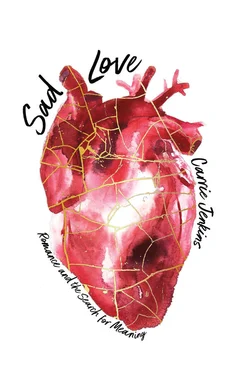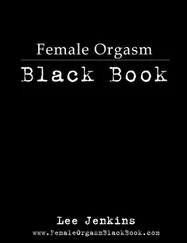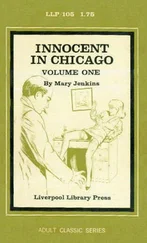The way I think things through is by writing, so in 2017 I started writing this book. But, as I wrote, the world turned, and it is now a very different place compared to how it was when I started. This book goes to press in 2022, in the echo of authoritarian challenges to democracy in the world’s most powerful nation, after years of watching the COVID pandemic hammer away at everything from the global economy to our intimate relationships. It took me a lot longer to write this book than I had originally planned. And it exploded into something bigger than what it was originally supposed to be.
Sad Love turned out to be more than a theory of romance. It’s become a recipe for living in the world as it is now. To be sad, even heartbroken, does not mean one cannot love – one’s partner, one’s country, or even humanity. But to appreciate what love is under circumstances such as these, I needed a very different understanding of love from the one I had been taught. One that diverges radically from the stories and the stereotypes. Love that comes with no promise, and perhaps even no hope , of a “happy ever after,” but is not lessened or degraded by that. Love whose aim, and whose nature, is something other than happiness.
That changes everything.
But, before I get to that, let me take a step back. What did I have to be so sad about in 2017? That was when my first book 2on the philosophy of love came out. I did a lot of interviews. I mean a lot of interviews. 3People like to talk about love, I guess. Certainly there aren’t enough opportunities to talk about love – at least, not in public. I don’t mean opportunities to exchange clichés – there are plenty of those. I mean really talk about love. In my book, I was trying to open some space for all the “weird” questions that everyone has, the ones that we aren’t supposed to ask in polite company. So maybe that’s part of why I was suddenly in demand.
It’s not the whole story, though. What the interviewers really wanted to talk about was not my theories so much as my personal life. In the book, I mentioned having a husband and a boyfriend at the same time (with everyone’s knowledge and consent). I described some of the challenges of this – the stigma, the awkwardness, the social pressure – canvassing research as well as my own experiences. I talked a little bit about what life can be like as an openly non-monogamous woman with two partners. (The short version: relentless slut-shaming.)
Still, there are lots of books about the experience of being non-monogamous. What made mine worth an interview? Here’s one guess: it had something to do with who I am. There’s the fact that I’m a woman, of course, which might make me a more interesting spokesperson for non-monogamy than a man would be: we are, after all, strongly conditioned to think of monogamy as something women want and men get pressured into. But there are also quite a lot of books about non-monogamy written by women. (Because there are quite a lot of non-monogamous women.) There’s the fact that I am a professor at a university, and maybe people took that to mean that I had thought about these things or that I’d done my homework. That might have been part of it.
But, more than that, I think it was just that I’m a professional, middle-class, middle-aged white woman. I look “normal” and … well, respectable . I don’t look like a rebel, a rule-breaker, a defier of social norms. I look average. Kind of boring. Paradoxically, I think that’s why I was interesting.
Polyamory is a form of consensual non-monogamy. Non-monogamy because it involves being open to more than one loving partner/relationship and consensual because it’s intentionally chosen by all parties involved (as opposed to cheating, which is non-consensual non-monogamy).
I remember a profile piece in the Chronicle of Higher Education . It was written by Moira Weigel, a journalist and author I admire. She came to meet me in Vancouver while researching the piece and we chatted on my front porch, went for sushi, then chatted some more. She wrote a strong profile, a little snapshot of me at a moment in time. When I read it, I saw my own reflection in her mind, an image both familiar and strange. A woman who smoked on her patio and wouldn’t talk about one particular topic. Whose dog still smelled of tomato juice after a close encounter with a skunk.
When it was decided that it would be the cover story for the Chronicle Review , the journal sent a photographer to my house to shoot me together with both of my then partners. Now, I am not a natural in front of a camera. Being looked at makes me awkward and self-conscious. It’s not just that I’m nervous about my appearance (although I am), there’s a moral component. Even a passing glance from a stranger makes me feel judged.
The house I lived in at the time was also not easy for a photographer to work with. It was small and dark. Built in the Edwardian era, houses like this are a rarity in Vancouver, but they can make a British export like myself feel homey and nostalgic. Eventually the Chronicle ’s photographer settled on the best (or least worst) option – upstairs in the room I used for writing, where there’s a bit of natural light from the window. The photographer posed me by the window, in my writing chair, with my partners standing behind me. Then, to get the best angle, he crouched back inside of a cupboard full of my clothes.
I was intensely aware of my partners’ bodies, peripherally visible to me as I sat in my chair. Both of my partners, in their different ways, seemed so comfortable with being photographed. With being seen. One of Jonathan’s many talents is stage performance – he is an amateur operatic singer with a gorgeous, rich, warm baritone voice that I love hearing around our house. Ray has years of experience in front of a camera, and anyway their entire being constantly radiates a fierce, model-like grace, even when they’re just walking round Save On Foods.
In the photo, we look like a rag-tag team of superheroes. I love it. Ray and I are no longer partners, and so this image has come to bear even more weight, capturing as it does a phase in my experience of love that I once hoped would be permanent but feels strange and distant to me just a few years on.
And then there it was on the cover of the Chronicle Review , emblazoned with the headline: “Can Carrie Jenkins make polyamory respectable?” You know, no pressure.
Respectable . It’s such a double-edged word. Was I actually trying to make polyamory respectable? Did I even want that? I would love for polyamory and other “weird” relationship forms to be deemed worthy of respect, the way “normal” relationships are. But do I want them to become bourgeois, stuffy, conventional?
There’s an old-established journalistic rule that says: if the headline is a question, the answer is “no.” I think the rule applies here. Nobody does things like that – no individual person. What I am good at is starting conversations and nudging them in under-explored directions. That’s how I see my work as a philosopher.
Anyway, back to why I was sad. When What Love Is and What it Could Be came out, and I started doing all those interviews, well-meaning friends and colleagues would say, “It must be nice for you, with your book getting all that attention!” But it wasn’t nice.
I’m an introvert for one thing. For another, much bigger thing, a lot of the attention was pure hate. Shortly after publication, ABC Nightline made a short news segment on my life and work, broadcast on national US television. They also posted it to their Facebook page. The top comments were “Immoral,” “Odd balls,” “Fucked up,” “Sick,” “It’s stupid,” and “Interesting.” (Thank you, whoever you were, for swimming against the tide.)
Читать дальше












